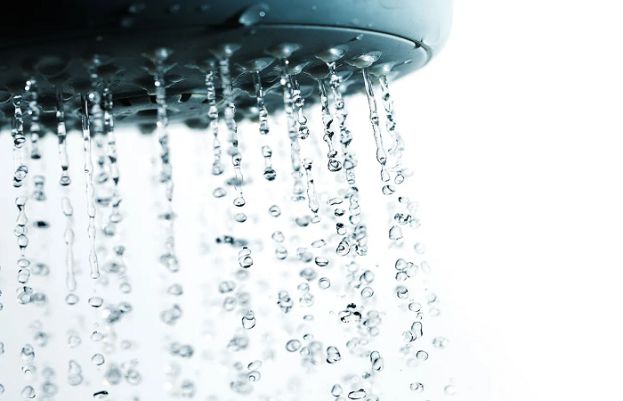Are long, hot showers bad for your skin? – SUCH TV

[ad_1]

It’s a cruel world sometimes. The tastiest foods are bad for your health, the finest things are bad for your wallet and long, hot showers, unfortunately, are bad for your skin.
But how can something as seemingly benign as hot water cause your skin problems? To answer that question, let’s start by taking a look at the structure of your skin.
While your skin is made of three layers including the subcutis and the dermis, hot showers affect the outermost layer, the epidermis. The epidermis is mostly composed of skin cells loaded with keratin, the same substance that makes up your hair and nails. These cells, called keratinocytes, not only provide a tough defense against the environment but also help your skin to retain moisture. To help keratinocytes retain the skin’s moisture, your body produces a thin layer of oil. Together, the outermost layer of skin cells and oil comprise the stratum corneum, and it’s this layer that takes a beating during a hot shower.
First, the heat from the shower makes the skin’s oils soften, much as butter softens and melts when heated. Add some soap into the mix, and the skin’s oil barrier will be stripped away in no time. Granted, this isn’t an altogether bad thing; that same oil barrier traps dirt and sweat, which leads to body odor. Still, without those oils, the moisture in your skin easily escapes, leading to dry and itchy skin. The longer and hotter the shower, the faster this process takes place and the more moisture you’re likely to lose.
Once you step out of the shower, you may notice your skin reddens and itches, a sure sign your skin has started to dry out. With regular hot showers, you might also notice dry patches of skin that feel scaly or even start to crack. Unfortunately, dry winter air only exacerbates the problem, wicking away even more moisture from the skin, so try to avoid the temptation of a hot shower when the temperature plummets. The good news is that, with a few changes to their daily routine, most people can easily treat dry skin themselves. Read on to find out how.
Showering Tips for Healthy Skin
We’ve already looked at how, bizarre as it may seem, hot showers actually dry out and damage your skin. Now we’re ready to explore how you can combat dry, flaking skin and the itchiness that comes along with it.
First, make sure to keep showers short, 10 minutes at the most. Second, keep the water temperature lukewarm during your shower. On a side note, keep the thermostat on your water heater around 120 degrees F (49 degrees C). Not only will setting the temperature on the low side keep you from scalding yourself with hot water, it will also help you lower your energy bills. Make sure to avoid baths as well; they tend to dry skin out even more than showers.
When you do shower, you might consider using only using soap to wash areas where you sweat, like under the arms and around the groin. Some dermatologists even recommend showering less frequently, skipping your shower altogether at least once a week. In addition, using gentle cleansers like Cetaphil can aid in protecting your skin’s natural moisture barrier. Some cleansers even have moisturizing agents built in, making them a great choice for people with sensitive skin.
Once you’ve finished with your shower, pat (rather than rub) yourself dry and apply a good moisturizer. Moisturizers act as a temporary replacement for your skin’s natural oils and prevent moisture from leaving the skin. Accordingly, try to apply moisturizer as soon as you get out of the shower; the longer you wait, the more moisture will escape. If you do experience dry skin, try your best to avoid scratching, which can irritate the skin even further.
By following the tips above and moisturizing routinely, you should be able to get your dry skin under control. If you notice the dry skin worsening, however, you should consider visiting a dermatologist. You may have a condition such as dermatitis or psoriasis that is causing your discomfort.
[ad_2]